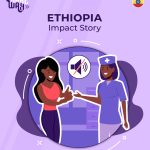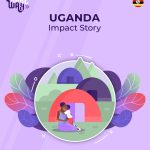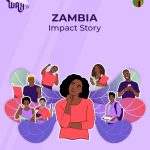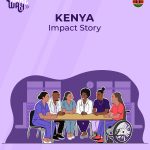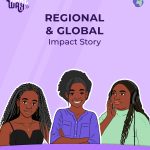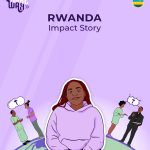
Marie Ange Raissa Uwamungu
Marie Ange Raissa Uwamungu is a young trailblazer in gender equality and human rights. She has beaten all the odds from living life in a slum to becoming the successful founder and executive director of the civil society organisation Impanuro Girls Initiative (IGI). Through being aware of the significant disparities that women and girls face when it comes to accessing sexual and reproductive health and rights (SRHR) information and services, Impanuro Girls Initiative (IGI) applies an intersectional approach to ensure no one is left behind. Read more →





